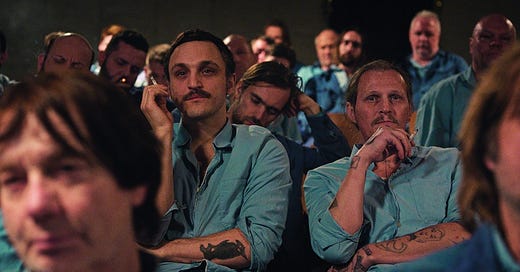The 34th AFI European Union Film Showcase
Featuring Great Freedom, What Do We See When We Look at the Sky, Petite Maman, and more
Writing
For the December issue of Commonweal magazine, I wrote about the Greek-Ethiopian filmmaker Nikos Papatakis, whose explosive 5-film oeuvre has been streaming on Criterion Channel since this summer. A teaser to whet your appetite:
When a niche director is rescued from the dustbin of film history, it’s fair to ask: Did they end up there for good reas…




